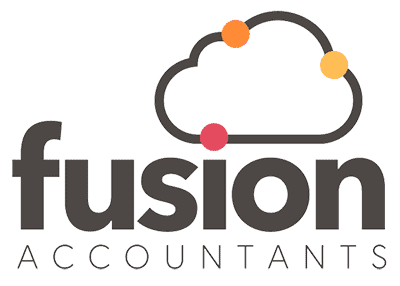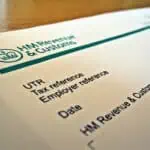Claiming lunches through your business
Reading Time:
Claiming back the money you spend on food (either for lunch or whilst on a business trip) is allowed whether you are employed or self-employed – but there are still rules around what you can claim on the food and drink you consume as a business expense.
You should keep in mind that the rules that apply to self-employed and employees are quite different. In this article, we will take through the rules for each separately.
Self-Employed
If you are self-employed and pay taxes, you are entitled to deduct certain expenses. Being self-employed means you can claim “reasonable” costs of food and drink when travelling on business as well as the ability to claim back any business expenses you incur to reduce your self-assessment tax bill and increase your disposable income.

Can I claim on my business trip?
It is essential you know what, and when, you can claim the lunch expense through your business or the cost of your meal whilst on a business trip as well. However, certain general conditions for this need to be met.
- Your business involves a large percentage of commercial travelling. For example, commercial travellers can claim their meals as a business expense since they are doing business while travelling.
- You are generally home-based but have to make “occasional business journeys”. Say, you run a clothing business and need to travel into the city to meet suppliers or distributors.
- The business trip that you make is not regular for your field. For instance, if you are a real estate agent and deal in a particular area of the property. A trip you make to Australia for a business conference will not be a part of your usual routine, and so the meals taken can be claimed.
- Claiming the cost of the room and/or meals for an overnight stay in a hotel for business.
If you want to claim a meal while not travelling, HMRC requires another business member to be present.
However, you need to keep in mind that you cannot spend a month in a foreign country with your spouse and claim the meal expense just because you spent an hour in a meeting for business. See HMRC’s full rules on this. Make sure whatever you claim has been necessary and an essential part of your business.
How do I calculate my business or meal expenses?
To calculate your business meal expense, all you need is a calculator and the meal receipts. To start with, gather all of your meal receipts for the tax year. Then, divide the receipts into two separate categories. The two categories can be named as:
1. Meal receipts while you were away from home or travelling.
2. Meal receipts while you were not travelling (including all the business meals you ate).
Add the receipts for meals while you were not travelling. Once this is done, you have two options to choose from for meals while travelling. You can either get the simplified meal deduction cost or the actual cost deduction. If you choose the standard deduction method, then you will use a daily rate set by HMRC.
If you choose the actual cost method, then you simply add up all the receipts of meals you had while travelling. Once you have calculated costs for both categories, add them up, multiply the total by 0.5, and you will have the amount that can you claim as a business expense.
Claiming my business or meal expense as an Employee

Usually, employees are given many fringe benefits such as a company car, gym membership, etc. and the meals are accounted for tax. However, there are a few exceptions.
HMRC says the meals provided to an employee by the employer are only are 100% tax-deductible by the employer. There are two significant conditions for this: the meals have to be provided on the employer’s business premises and that the meals are provided to be convenient for the employer. Where the employees work past their working hours, the meals provided can be claimed.
If your employer is a restaurant owner, then the meals provided to the waiter or waitress during working hours can be claimed. But, if you go out for lunch with the staff and invite friends and family, the meals for friends and family cannot be claimed for.
As an Employer, if more than 50% of your employees satisfy both requirements, separately and together, all the meals that you provide to employees can be treated as provided for the employer’s convenience.
Claiming my meal expenses as an Employee
All office food and snacks, including meals provided at a company party, can be claimed. You can calculate these expenses in the same way as for self-employed. You just need the meal receipts and a calculator. Add all of the receipts together. See HMRC rules on claiming tax relief on the expenditure on food, drink, or overnight stay expenses.
Business lunches with clients
Lunches with clients cannot be claimed for business purposes. Your business may on many occasions, pay for the lunch, but when you file for tax at the end of the year, you cannot add this to the receipts you are claiming expenses for.
Business lunches with staff
You cannot claim staff meal expenses during a typical working day. However, if it is an infrequent event where you get together with an employee or team to discuss a business project or other work-related plans or assignments, it can be claimed.
If you are travelling on a business trip and decide to take an employee along with you, the meals for you and the employee are claimable expenses as they will be outside your normal working conditions.
The difference and similarities between Self-employed and Employees
If you are self-employed, and looking to HMRC for guidance on claiming for food and drink, they do not outline what a “reasonable” expense is, which can be a bit frustrating.
As an employee, you can claim both the cost of travel and meal because HMRC includes meals under “necessary cost of business travel”. However, you will not be able to claim for meals if you have expensive tastes when choosing the venue or menu (i.e., Michelin star restaurants). So, stay well clear of The Gavroche if you want to guarantee to claim your money back from your business meal!
HMRC has different rules for both employees and self-employed. Their ratios and percentages differ, and they have strict rules and conditions that need to be followed. Overall, the cost of meals is a good example of where HMRC is far more generous to employees than to the self-employed.
For example, in the case of employees, they need to be on the employer’s business premises whereas if you are self-employed, there is no such requirement because you are your own boss.
A significant similarity between the two is that HMRC requires, in both cases, the meals to be ordinary and necessary during working hours. Meals that fall outside of these parameters cannot be accounted for.
In Conclusion
People eat daily. So, why not save some of those all-important tax deductions from your hard-earned money? You may not think the small amounts add up to very much, but over 12 months, you will be surprised how much that figure has grown which you can then offset against your tax bill. Added together with all the other expenses that you can claim as a sole trader or employee, it could help keep your tax bill low and used for re-investment opportunities.
When weighing up whether to be employed or self-employed, they each come with pros and cons. So, if you are still wondering what your status is, it’s better to look closer into whether it is better to be: Employed or Self-Employed?
Looking for self-employed career opportunities in London? Find your perfect job match with Jooble






